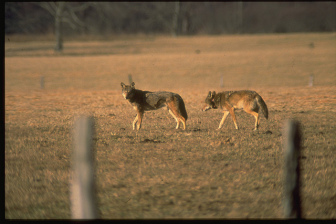Via The Center for Biological Diversity
With Only 45 Remaining in North Carolina, New Plan Would Save Wild Population
WASHINGTON— Seven animal protection and conservation organizations filed a petition today with the U.S. Fish and Wildlife Service seeking an updated recovery plan for the rapidly dwindling population of wild red wolves. The recovery plan for the red wolf has not been updated since 1990. Since that time red wolves have expanded their range in the wild, faced additional threats from increased poaching and hybridization with coyotes and seen changes in their management. With all of these changes, an updated, science-based recovery plan is needed now more than eve
“Experts in red wolf ecology, genetics and biology have published significant scientific research since the plan was created over a quarter-century ago,” said Tara Zuardo, an AWI wildlife attorney. “An amended recovery plan based on the best available science is vital to ensure that red wolves survive in the wild.”

The petition includes information about threats to the red wolf and provides strategies to address those threats, including reducing lethal and nonlethal removal of wolves from the wild; resuming the use of the “placeholder program,” which involved releasing sterilized coyotes to hold territories until red wolves can replace them; resuming the use of the cross-pup fostering program as a way to increase the genetic diversity of the species; identification of additional reintroduction sites; and increasing outreach and education to garner support for wolves and stop poaching.
“The red wolf is teetering on the brink of extinction, but it can be saved by putting in place an aggressive recovery plan,” said Collette Adkins, a biologist and senior attorney at the Center for Biological Diversity. “A new recovery plan would serve as a road map, outlining all the necessary steps to ensure that future generations have a chance to see these beautiful wolves in the wild.”
In September the Fish and Wildlife Service announced plans to confine red wolf recovery to just federal lands in Dare County, while also identifying new sites for wolf introductions and doubling the number of captive-breeding pairs. The agency’s controversial proposal to restrict the recovery area in North Carolina has been met with stark criticism. Last week 30 prominent experts in wolf conservation sent a letter expressing their concerns. And on Wednesday Rep. Raúl Grijalva (D-Ariz.) and eight key Democratic leaders sent a letter urging Interior Secretary Sally Jewell to revive the red wolf recovery program.
“This petition represents our proactive vision for red wolf recovery,” said Ben Prater, Southeast program director for Defenders of Wildlife. “The red wolf is a part of our national wildlife heritage, just like the bald eagle or grizzly bear. We’re calling on the U.S. Fish and Wildlife Service to honor that legacy and bring the red wolf back from the brink of extinction. Conservation advocates nationwide agree we have the ability and the obligation to recover this iconic species.”
Petitioners request a prompt response to their petition confirming that the Service has begun work on an updated plan for the red wolf, a timeline for completing the recovery planning process, and implementation of recovery strategies necessary for the species.
The petitioners include the Animal Welfare Institute (AWI), the Center for Biological Diversity, Defenders of Wildlife, Endangered Species Coalition, South Florida Wildlands Association, WildEarth Guardians and the Wolf Conservation Center.
The Center for Biological Diversity is a national, nonprofit conservation organization with more than 1.1 million members and online activists dedicated to the protection of endangered species and wild places: www.biologicaldiversity.org
The Animal Welfare Institute (awionline.org) is a nonprofit charitable organization founded in 1951 and dedicated to reducing animal suffering caused by people. AWI engages policymakers, scientists, industry, and the public to achieve better treatment of animals everywhere — in the laboratory, on the farm, in commerce, at home, and in the wild.
Defenders of Wildlife is dedicated to the protection of all native animals and plants in their natural communities. With more than 1.2 million members and activists, Defenders of Wildlife is a leading advocate for innovative solutions to safeguard our wildlife heritage for generations to come. For more information, visit www.defenders.org. For the latest news from Defenders, follow us at @DefendersNews.


1 comment on “Petition Filed With U.S. Fish and Wildlife Service Seeking Updated Recovery Plan for Red Wolf”
We need predators, please protect them, by keeping the Recovery Plan for Red Wolf.
Thanks so much for reading